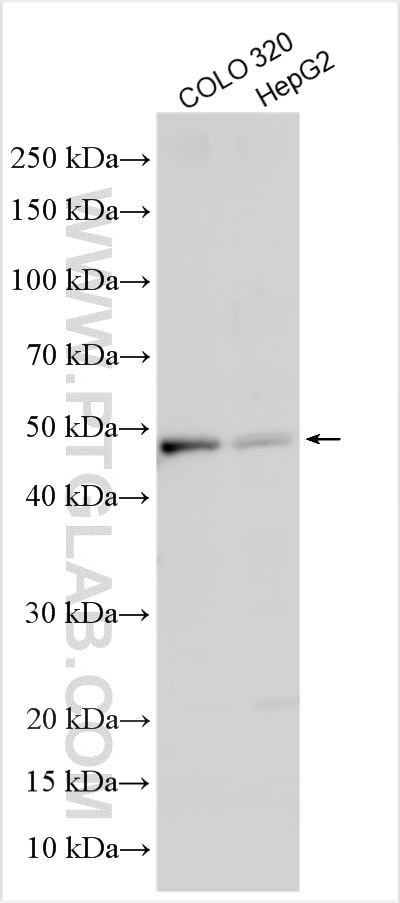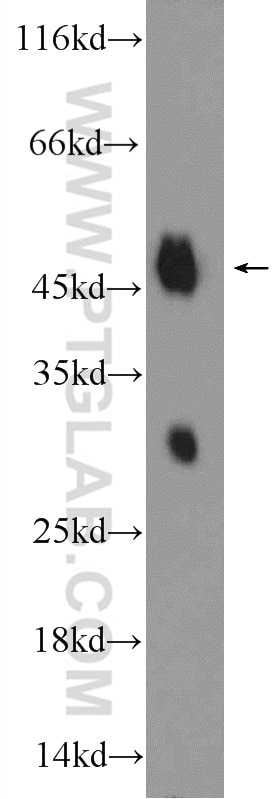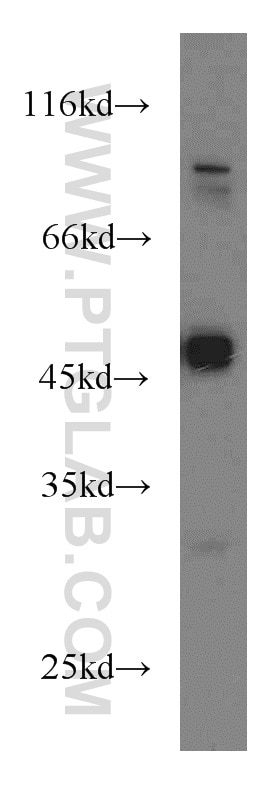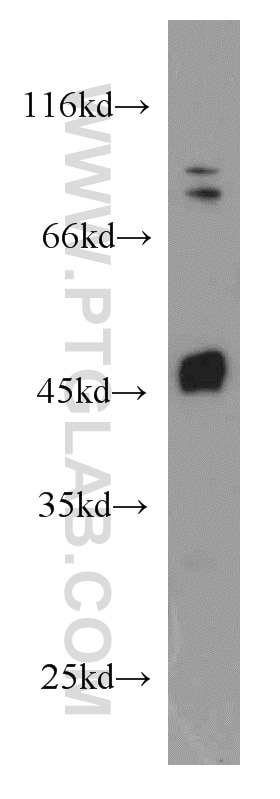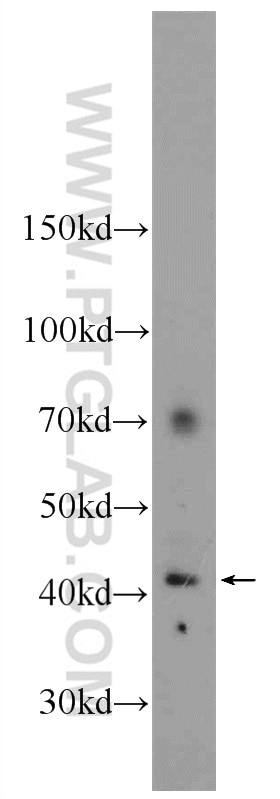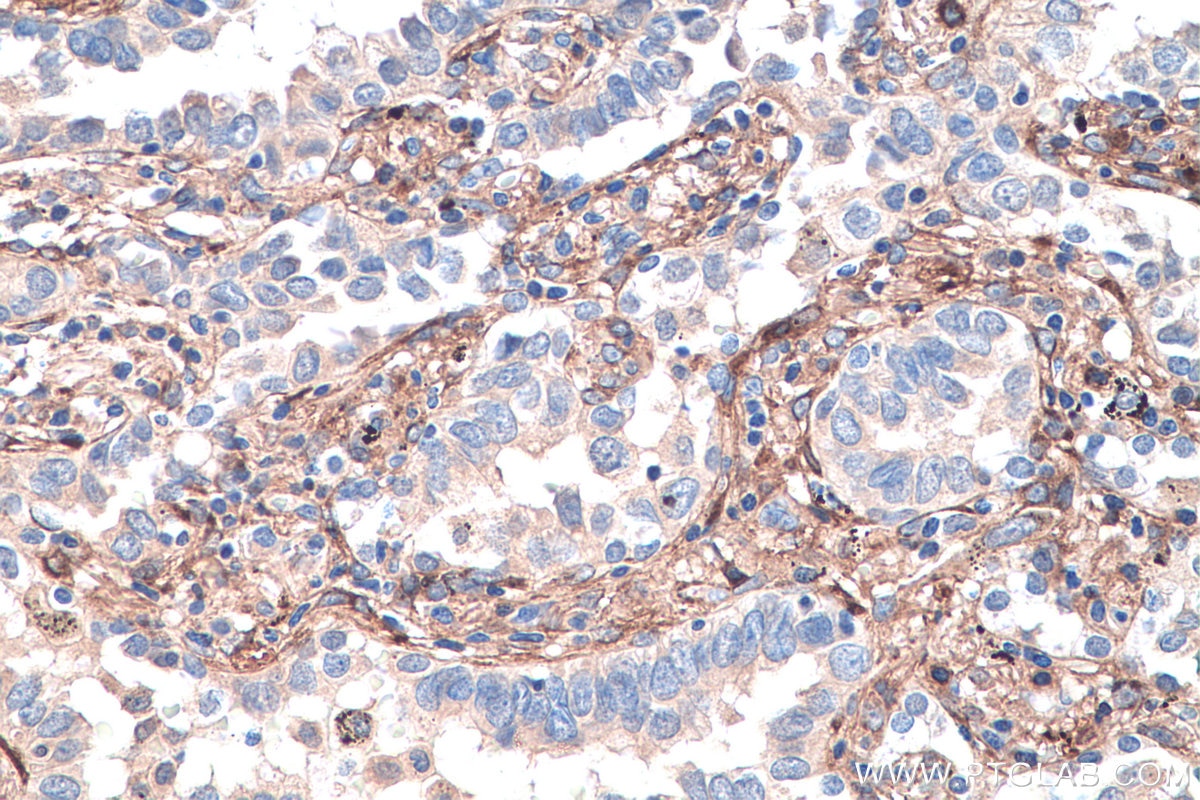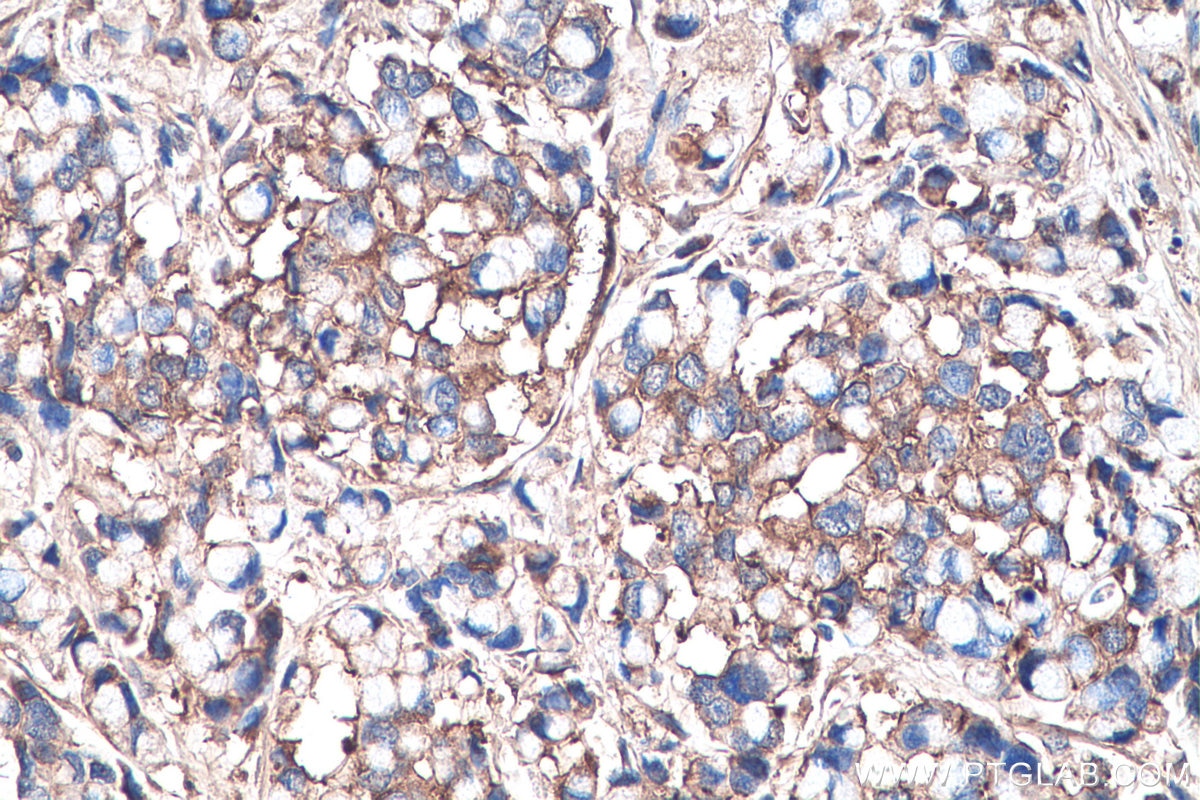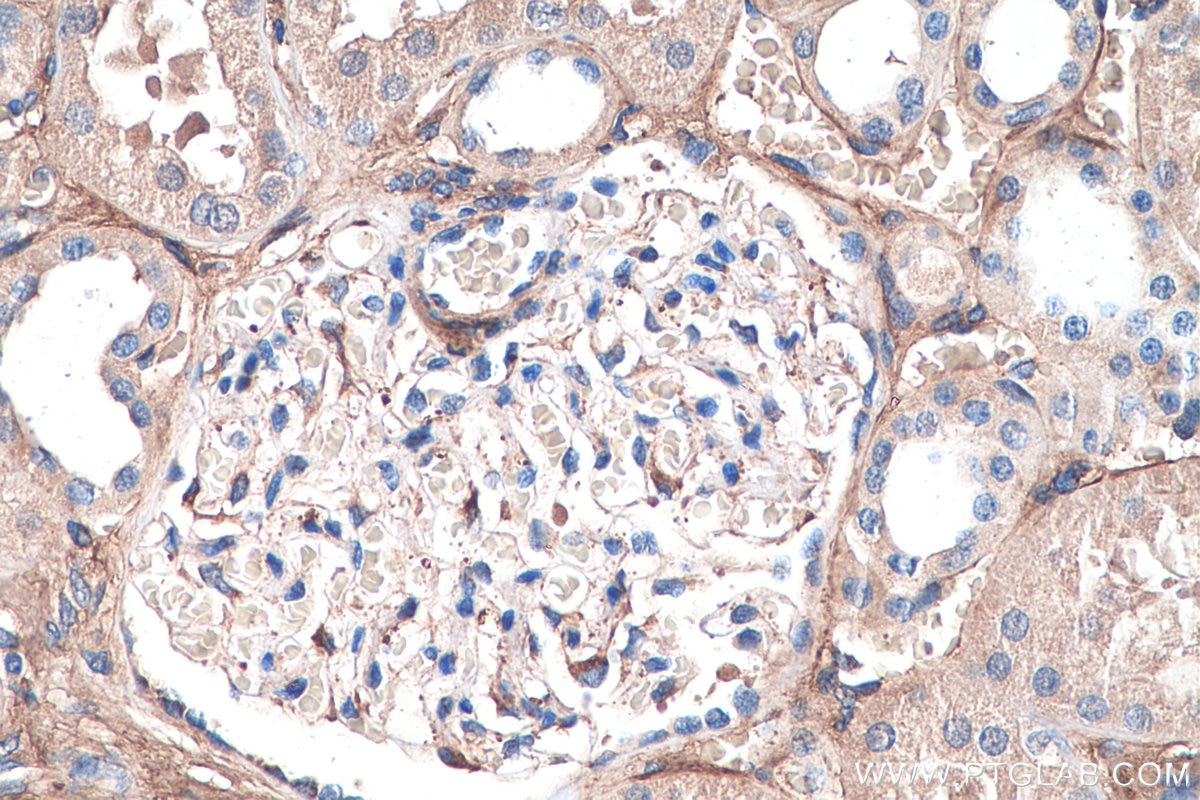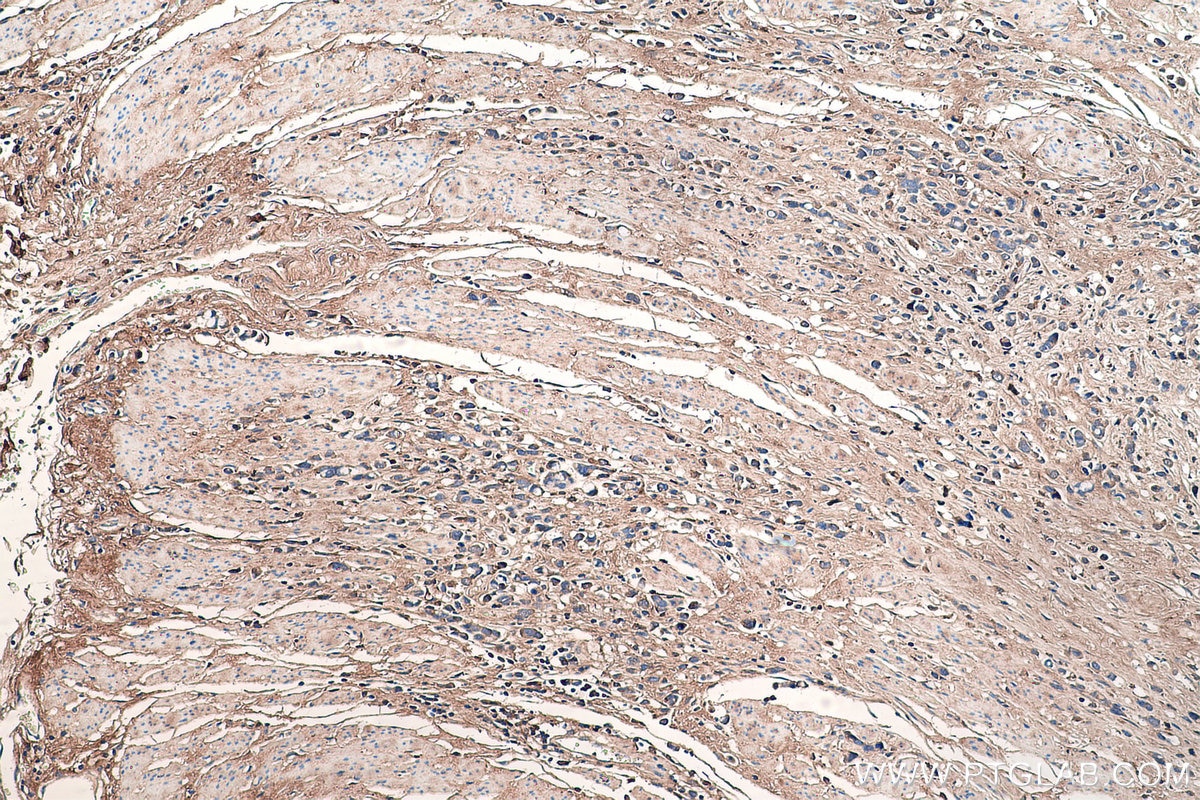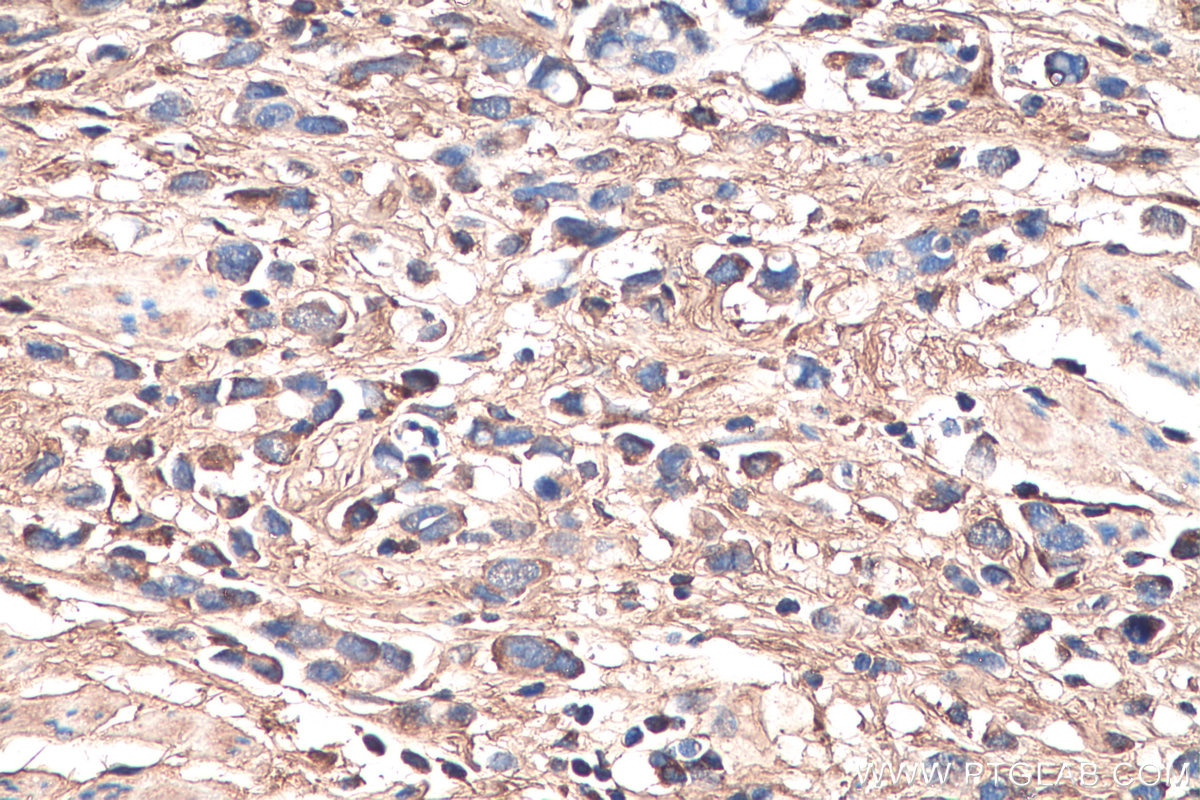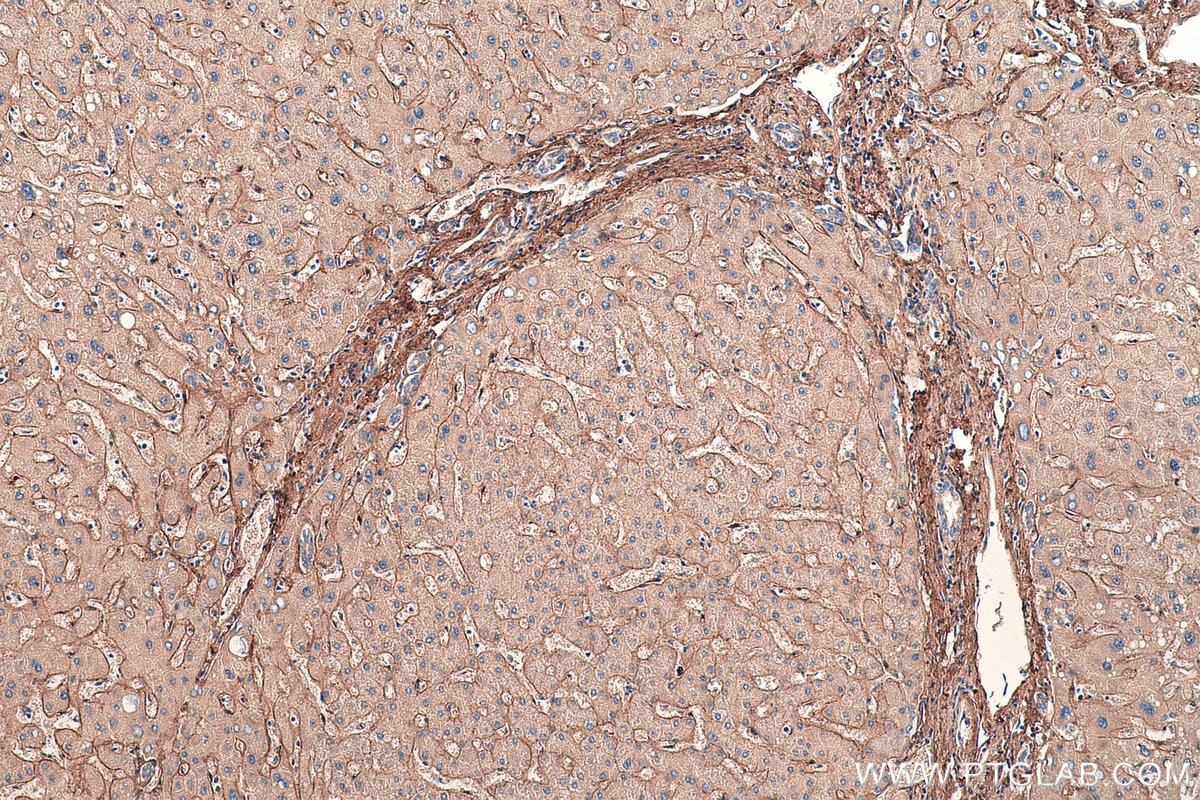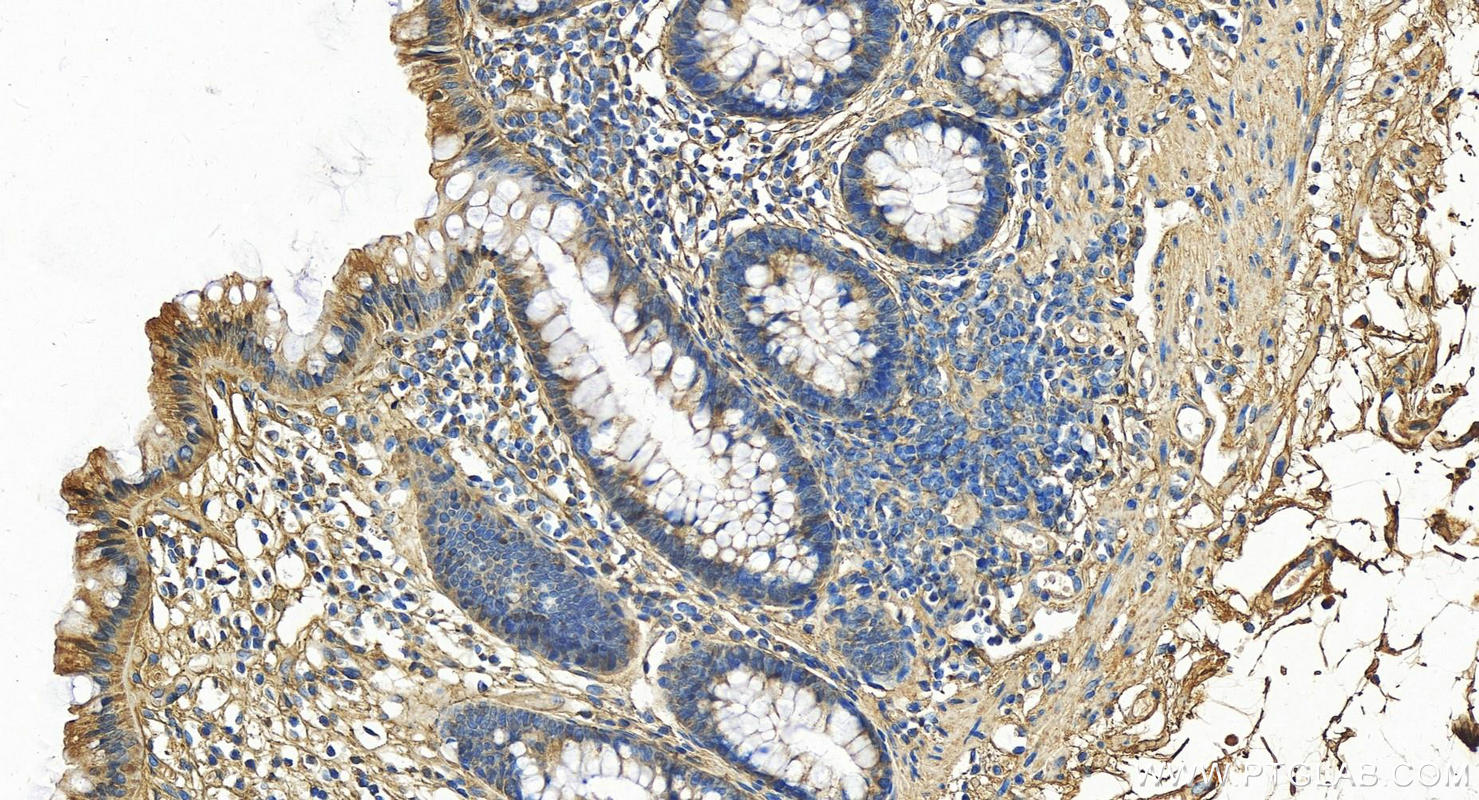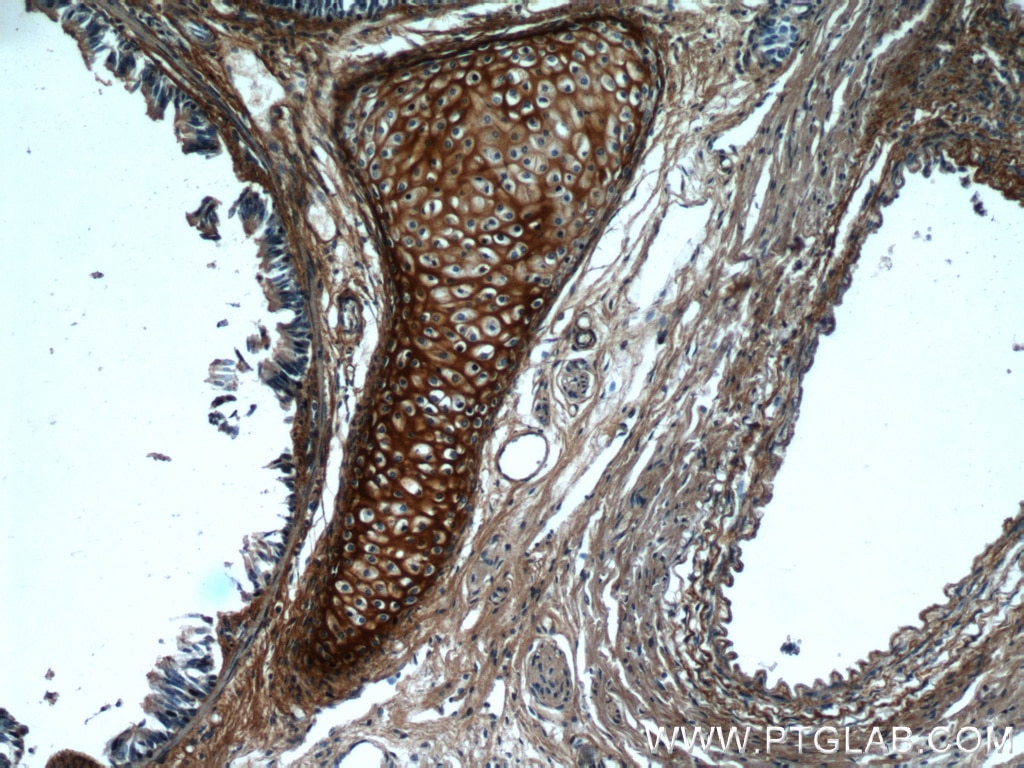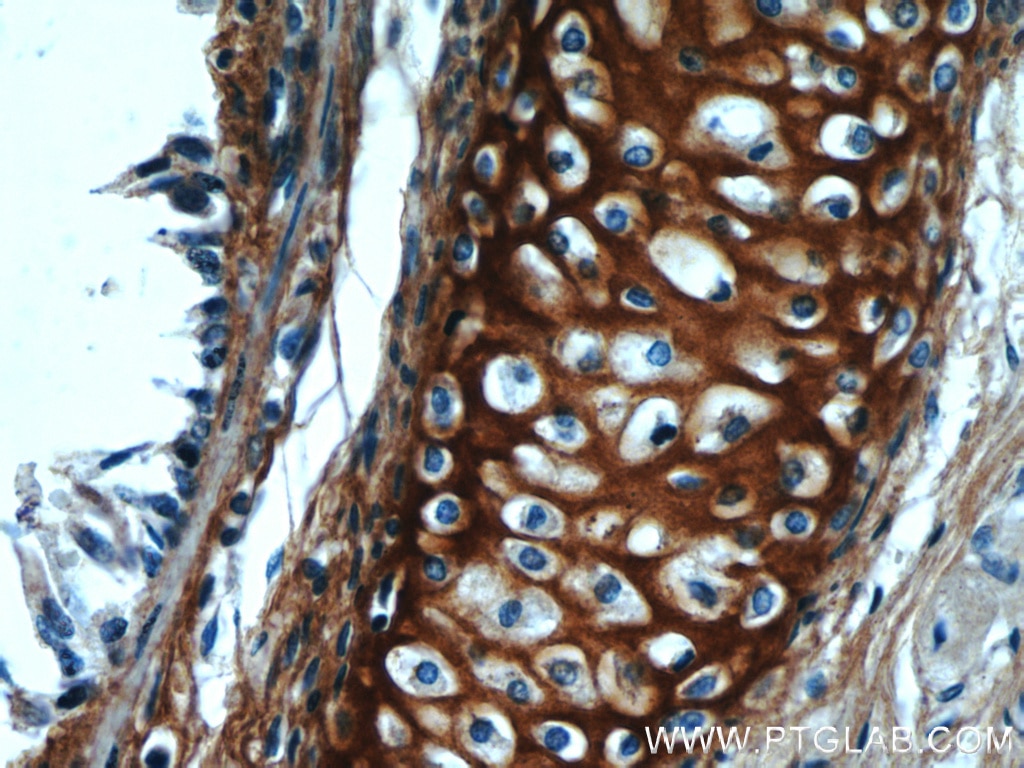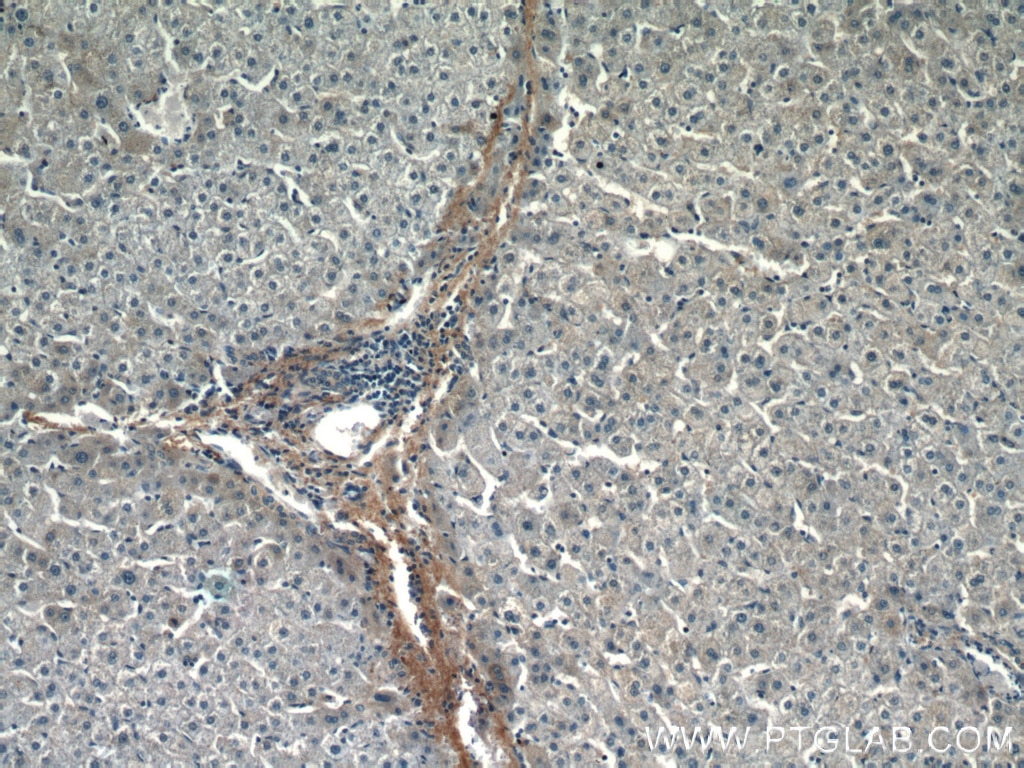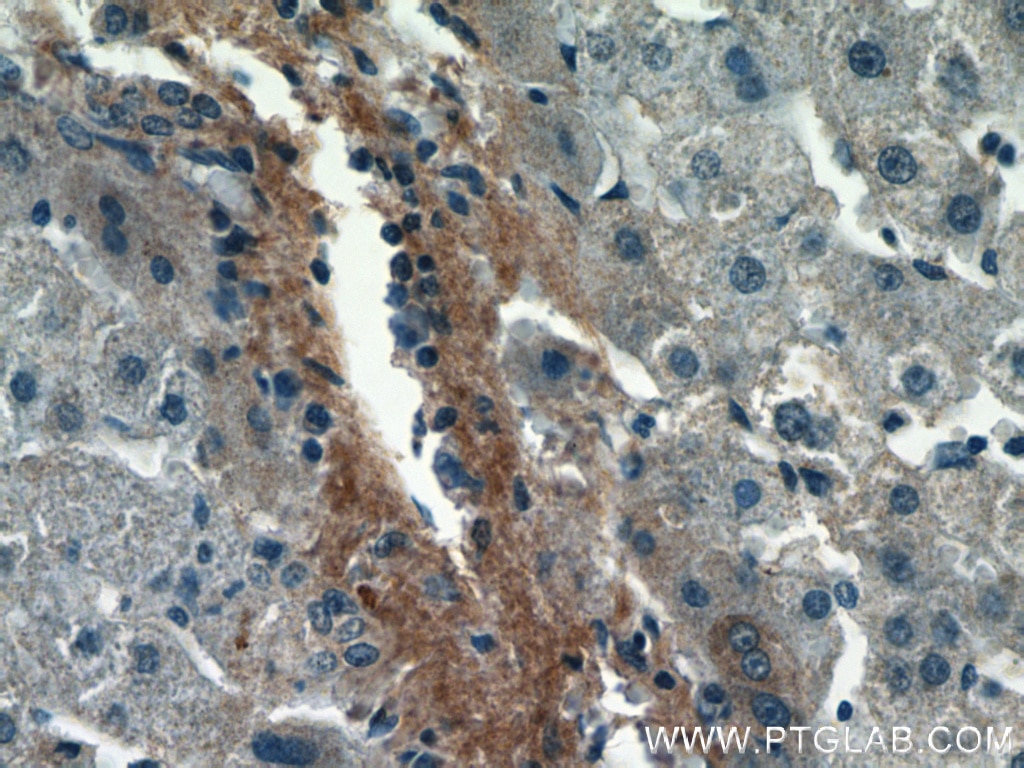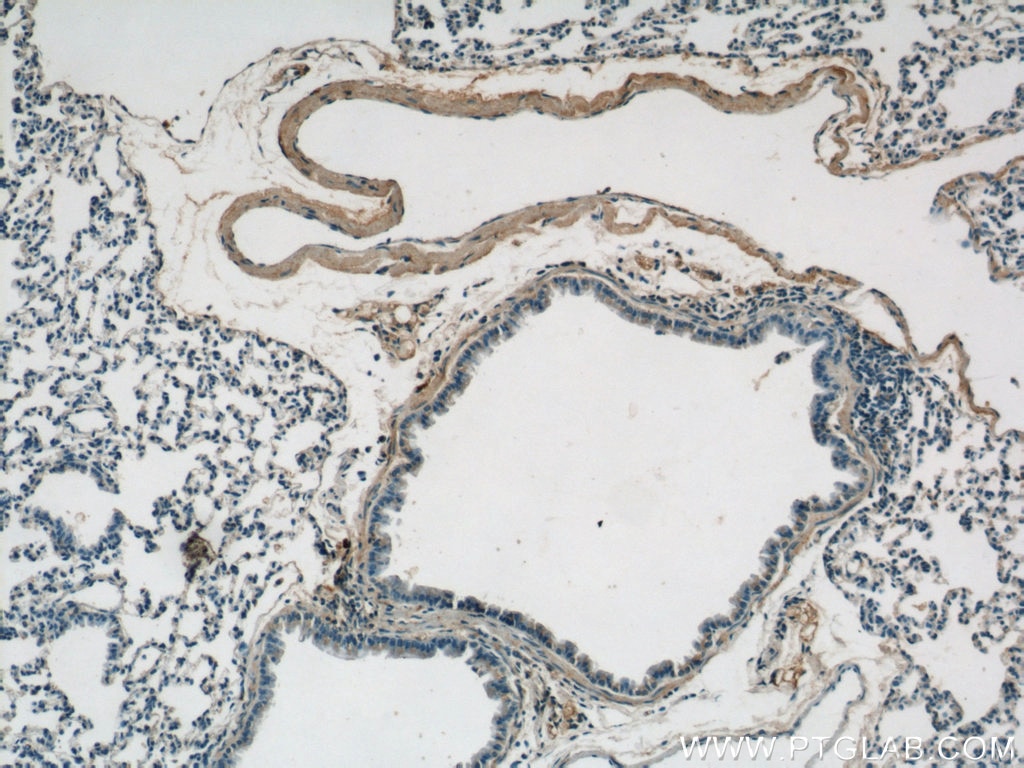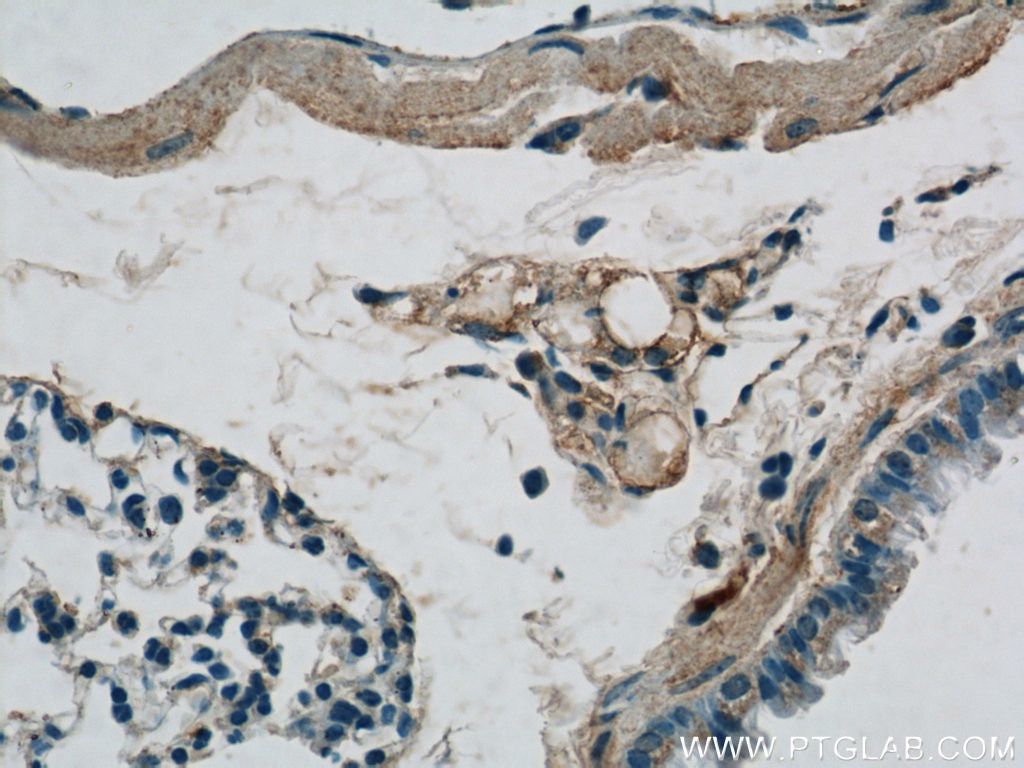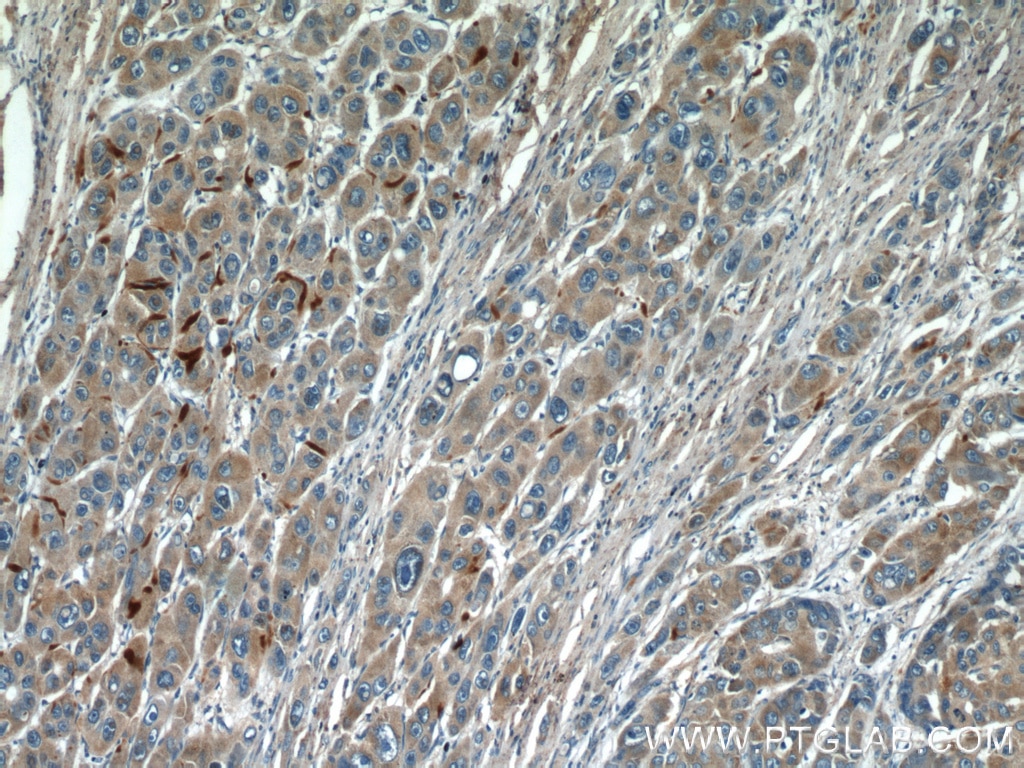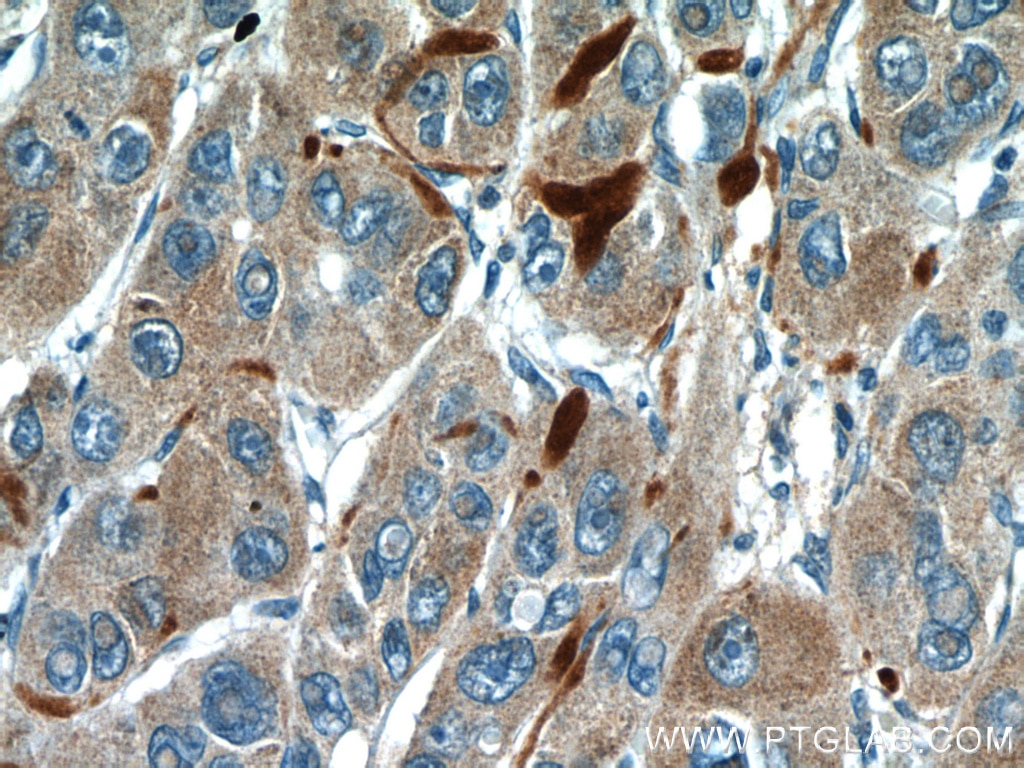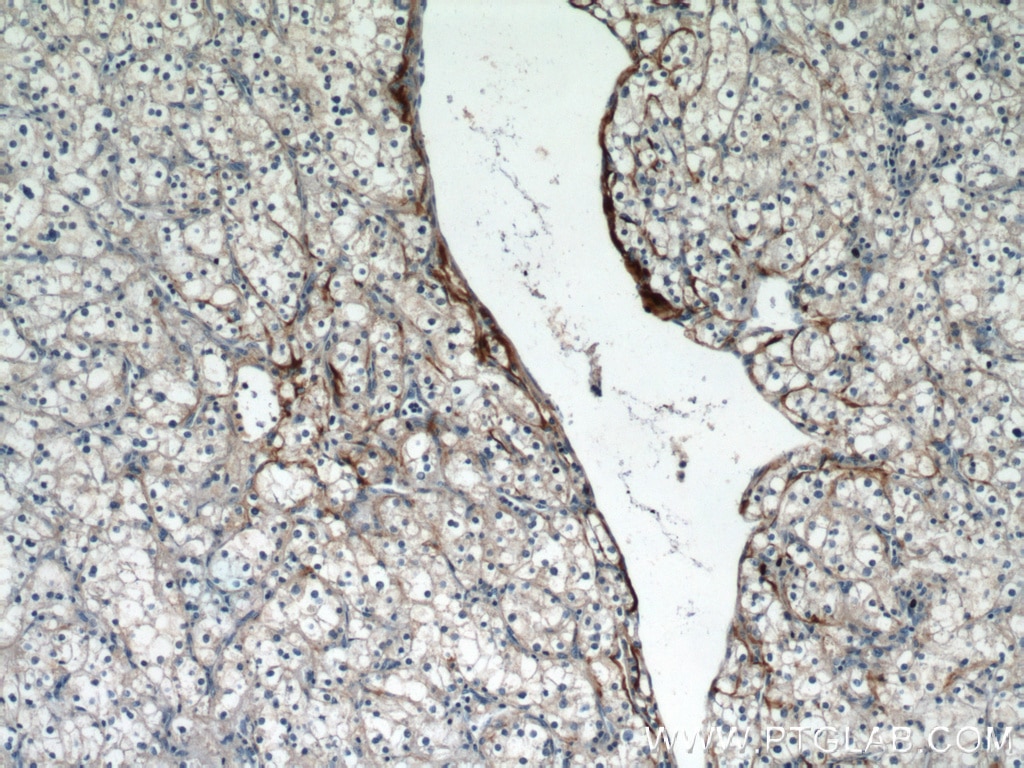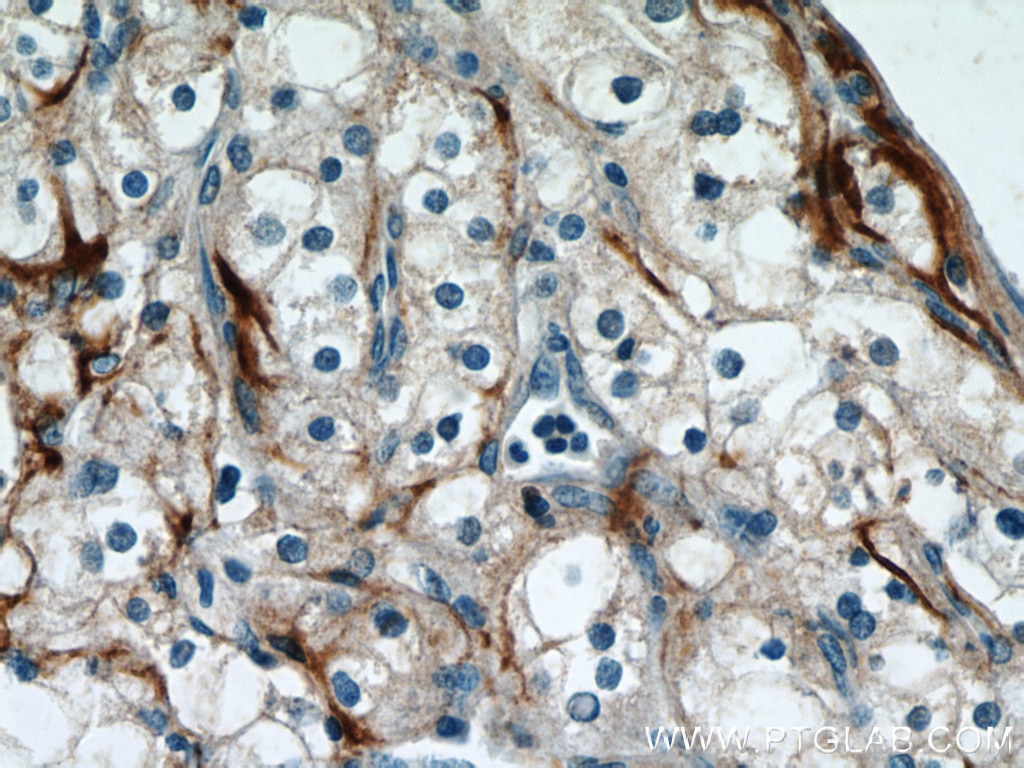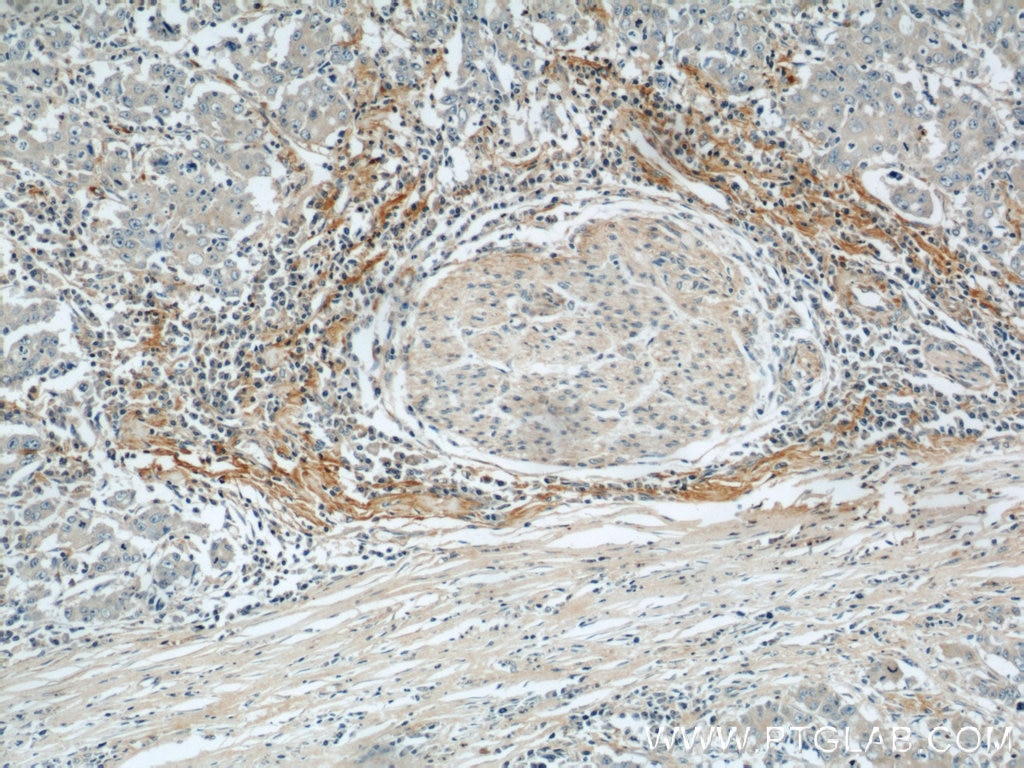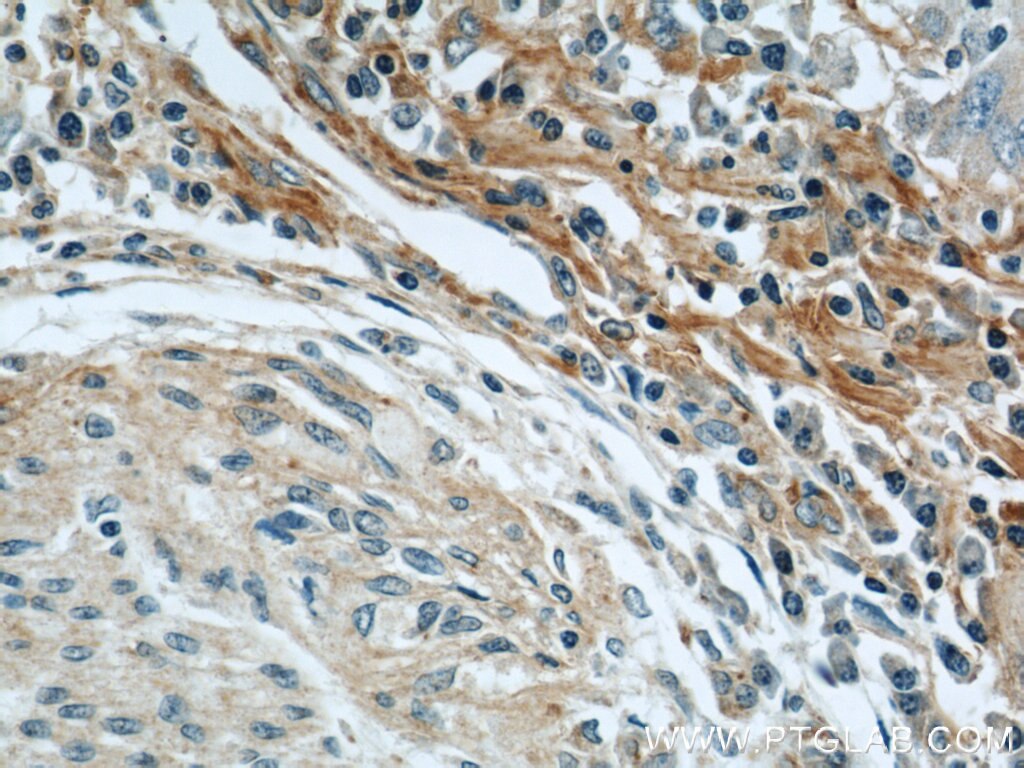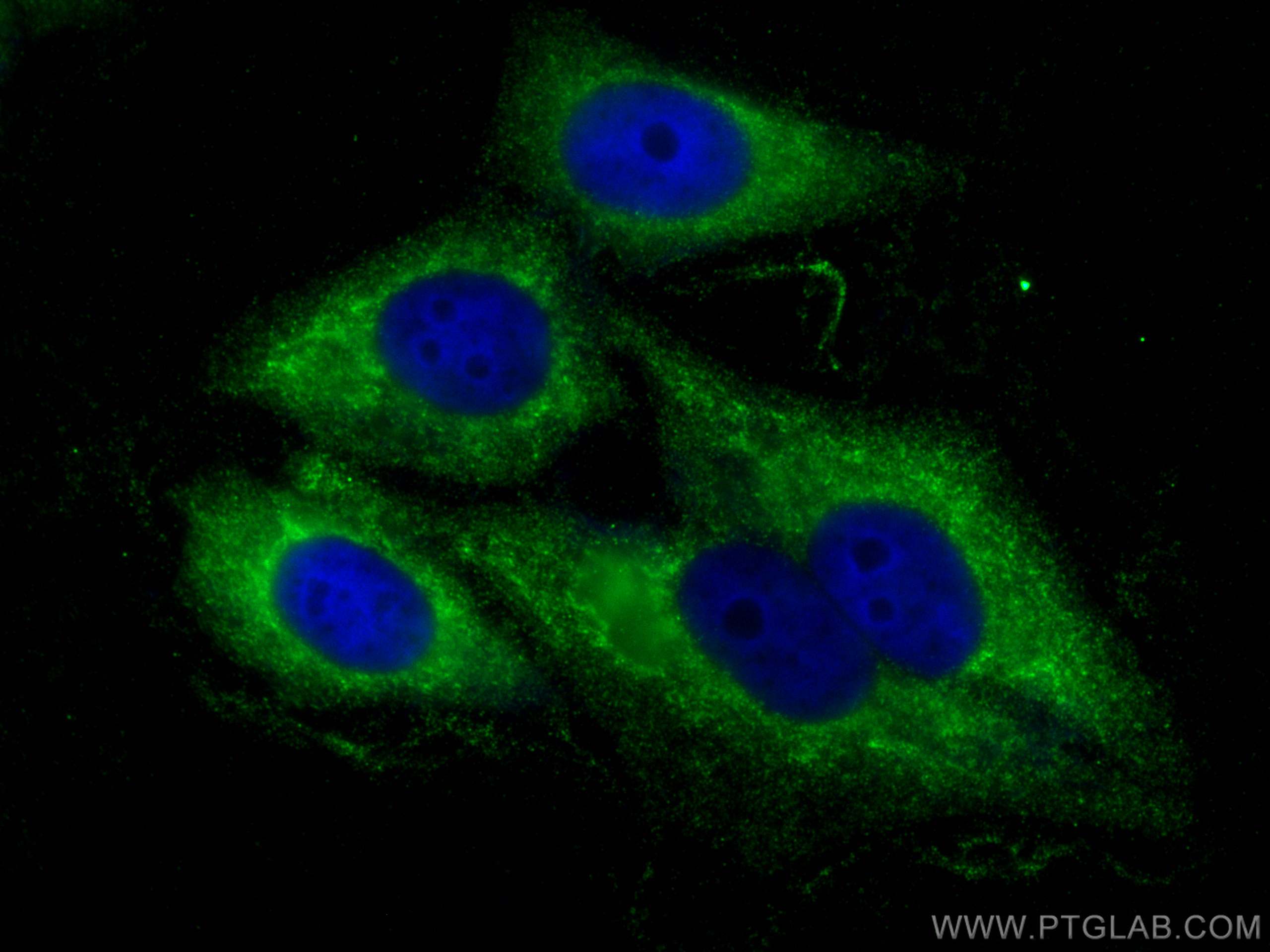- Featured Product
- KD/KO Validated
Biglycan Polyklonaler Antikörper
Biglycan Polyklonal Antikörper für WB, IHC, IF/ICC, ELISA
Wirt / Isotyp
Kaninchen / IgG
Getestete Reaktivität
Hausschwein, human, Maus, Ratte und mehr (1)
Anwendung
WB, IHC, IF/ICC, ELISA, Cell treatment
Konjugation
Unkonjugiert
Kat-Nr. : 16409-1-AP
Synonyme
Geprüfte Anwendungen
| Erfolgreiche Detektion in WB | COLO 320-Zellen, HeLa-Zellen, HepG2-Zellen, Maus-Skelettmuskelgewebe, Hausschwein-Knorpelgewebe |
| Erfolgreiche Detektion in IHC | humanes Lungenkarzinomgewebe, humanes Kolonkarzinomgewebe, humanes Nierengewebe, humanes Leberkarzinomgewebe, humanes Lebergewebe, humanes Lungengewebe, humanes Nierenzellkarzinomgewebe, humanes Magenkrebsgewebe, Mauslungengewebe Hinweis: Antigendemaskierung mit TE-Puffer pH 9,0 empfohlen. (*) Wahlweise kann die Antigendemaskierung auch mit Citratpuffer pH 6,0 erfolgen. |
| Erfolgreiche Detektion in IF/ICC | HepG2-Zellen |
Empfohlene Verdünnung
| Anwendung | Verdünnung |
|---|---|
| Western Blot (WB) | WB : 1:1000-1:5000 |
| Immunhistochemie (IHC) | IHC : 1:200-1:4000 |
| Immunfluoreszenz (IF)/ICC | IF/ICC : 1:200-1:800 |
| It is recommended that this reagent should be titrated in each testing system to obtain optimal results. | |
| Sample-dependent, check data in validation data gallery | |
Veröffentlichte Anwendungen
| KD/KO | See 3 publications below |
| WB | See 18 publications below |
| IHC | See 9 publications below |
| IF | See 10 publications below |
Produktinformation
16409-1-AP bindet in WB, IHC, IF/ICC, ELISA, Cell treatment Biglycan und zeigt Reaktivität mit Hausschwein, human, Maus, Ratten
| Getestete Reaktivität | Hausschwein, human, Maus, Ratte |
| In Publikationen genannte Reaktivität | human, Hund, Maus, Ratte |
| Wirt / Isotyp | Kaninchen / IgG |
| Klonalität | Polyklonal |
| Typ | Antikörper |
| Immunogen | Biglycan fusion protein Ag0683 |
| Vollständiger Name | biglycan |
| Berechnetes Molekulargewicht | 42 kDa |
| Beobachtetes Molekulargewicht | 40-48 kDa |
| GenBank-Zugangsnummer | BC004244 |
| Gene symbol | Biglycan |
| Gene ID (NCBI) | 633 |
| Konjugation | Unkonjugiert |
| Form | Liquid |
| Reinigungsmethode | Antigen-Affinitätsreinigung |
| Lagerungspuffer | PBS with 0.02% sodium azide and 50% glycerol |
| Lagerungsbedingungen | Bei -20°C lagern. Nach dem Versand ein Jahr lang stabil Aliquotieren ist bei -20oC Lagerung nicht notwendig. 20ul Größen enthalten 0,1% BSA. |
Hintergrundinformationen
Biglycan is a member of the small leucine-rich proteoglycan (SLRP) family (PMID: 18463092). It consists of a core protein of 42 kDa containing leucine-rich repeats (LRRs), to which two chondroitin/dermatan sulfate side chains are covalently bound (PMID: 2212616; 10383378). The tissue-specific chondroitin- or dermatan-sulfate glycosaminoglycan chains of biglycan are attached to amino acid residues at the N-terminus of the core protein (PMID: 22821552). Biglycan is a ubiquitous component of connective tissue matrix and may act as a signaling molecule (PMID: 22821552). Upregulation of biglycan has been reported in multiple types of solid cancer (PMID: 32194659).
Protokolle
| PRODUKTSPEZIFISCHE PROTOKOLLE | |
|---|---|
| WB protocol for Biglycan antibody 16409-1-AP | Protokoll herunterladen |
| IHC protocol for Biglycan antibody 16409-1-AP | Protokoll herunterladenl |
| IF protocol for Biglycan antibody 16409-1-AP | Protokoll herunterladen |
| STANDARD-PROTOKOLLE | |
|---|---|
| Klicken Sie hier, um unsere Standardprotokolle anzuzeigen |
Publikationen
| Species | Application | Title |
|---|---|---|
Oncoimmunology Landscape of cancer-associated fibroblasts identifies the secreted biglycan as a protumor and immunosuppressive factor in triple-negative breast cancer. | ||
Cancers (Basel) Biglycan Promotes Cancer Stem Cell Properties, NFκB Signaling and Metastatic Potential in Breast Cancer Cells.
| ||
J Biol Eng Proteomic analysis of decellularized mice liver and kidney extracellular matrices | ||
Oncoimmunology Biglycan-mediated upregulation of MHC class I expression in HER-2/neu-transformed cells. | ||
Cell Prolif Aspirin inhibits inflammation and scar formation in the injury tendon healing through regulating JNK/STAT-3 signalling pathway. | ||
Cancer Med Establishment of a risk model by integrating hypoxia genes in predicting prognosis of esophageal squamous cell carcinoma |
Rezensionen
The reviews below have been submitted by verified Proteintech customers who received an incentive for providing their feedback.
FH Lin (Verified Customer) (11-18-2024) | Cells were fixed in 4% PFA, permeabilized with .1% Triton, and blocked for 1 hour. 1o was incubated overnight in 1% BSA followed by 2o incubation for 1hr and imaging. More concentrated dilutions than 1:500 (eg 1:200) produced nonspecific aggregates outside of cells that were not seen in 2o only control.
|
FH Federica (Verified Customer) (12-08-2023) | Leica Bond Rxm Red Chronogenic Kit Antigen Retrival ER1 (ph6) for 30 min
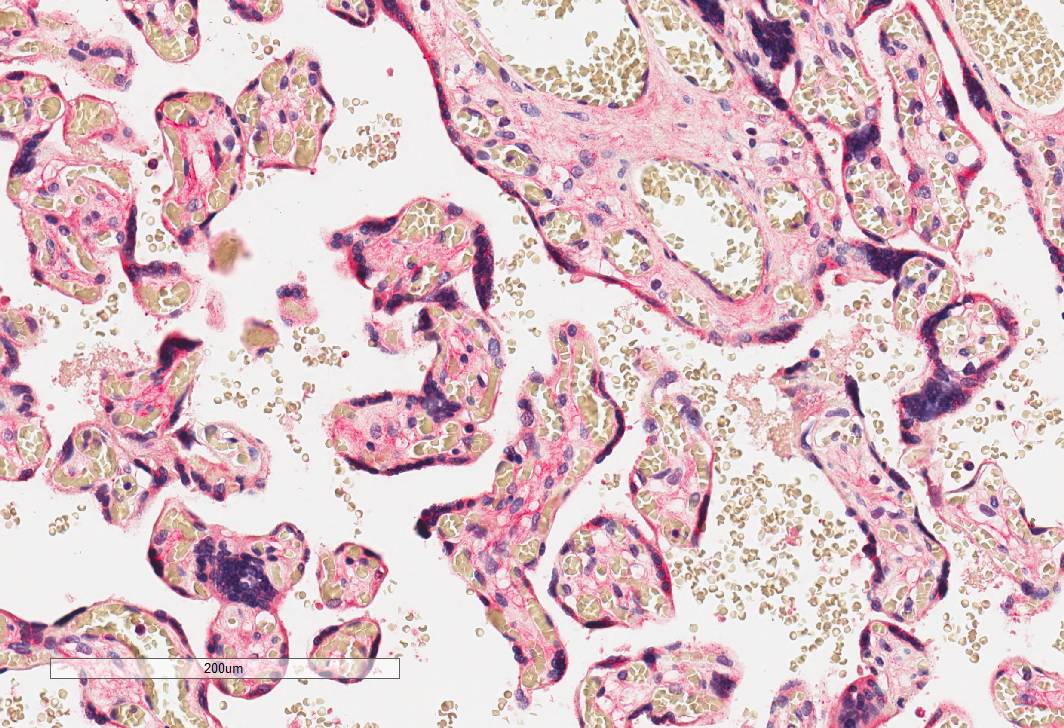 |
